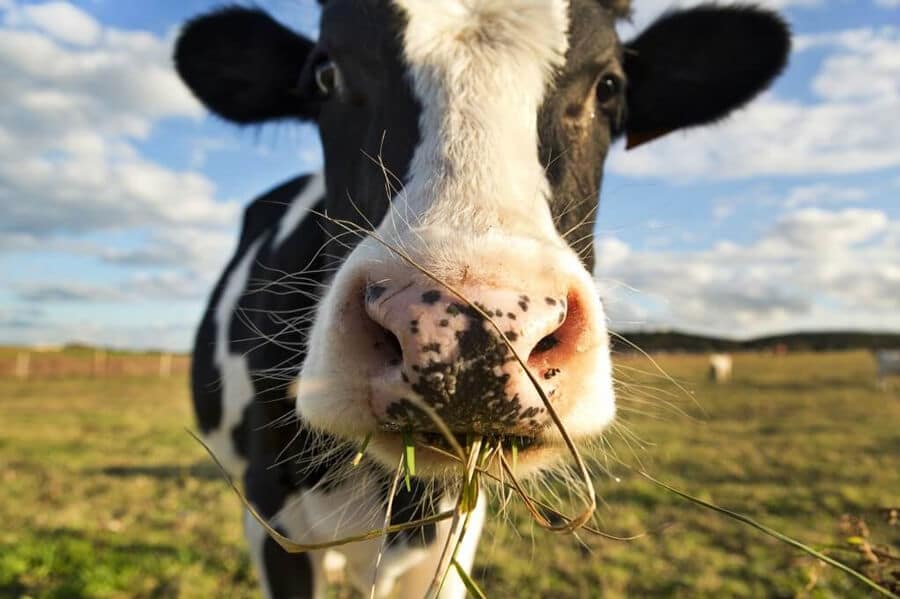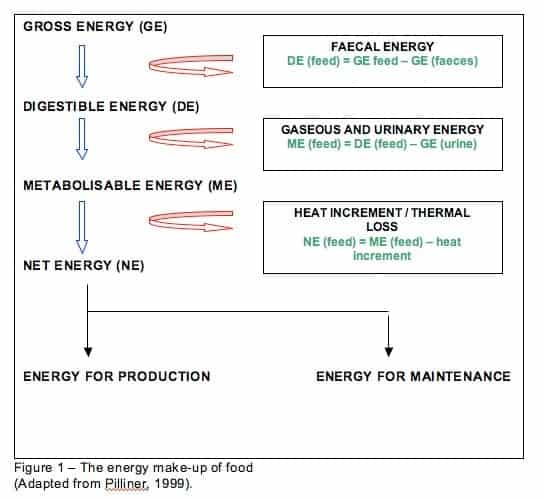
Digestibility is a very important factor of determining the quality of your feed and is directly related to productivity. There are several forms of digestibility that must be considered, as seen in figure 1, and these include:
Gross Energy (GE) is a measure of the total amount of energy that a feed contains and is made up of many different digestible components.
Digestible Energy (DE) is an important indication of the quality of a feed stuff such as pasture. It is a measure of the gross amount of energy that a feed contains minus the energy content that is lost in the faeces.

Metabolisable Energy (ME) is the amount of energy that a feed contains minus the energy that is lost through bodily functions such as faeces, urine and gaseous emissions.
Net Energy (NE) is a measure of the ME value minus the energy that is used for heat produced during digestion of the feed. Net energy is a good indication of the actual energy that is available for an animal to use for production purposes.
There are several factors which can affect the digestibility of a feed and these include:
- Type of pasture, could be a ryegrass dominant pasture or phalaris dominant pasture
- Stage of maturity and composition of sample submitted
- The amount of rain that has fallen on the pasture prior to sampling as rain decreases digestibility
- The different districts the samples have come from, variation in stage and conditions of the growing season will influence the quality
- The amount of clover a sample contains
- The amount of green material a sample contains